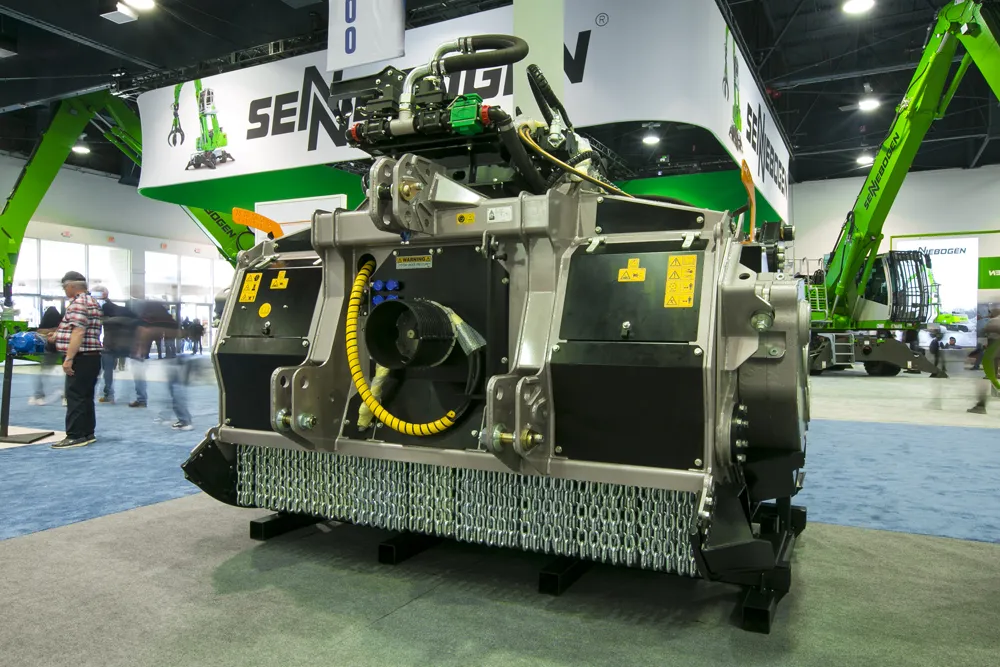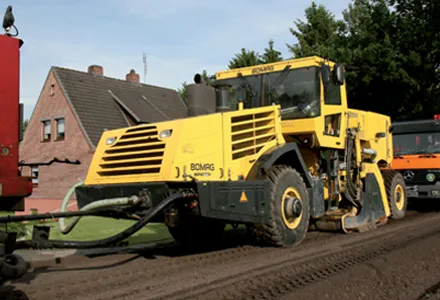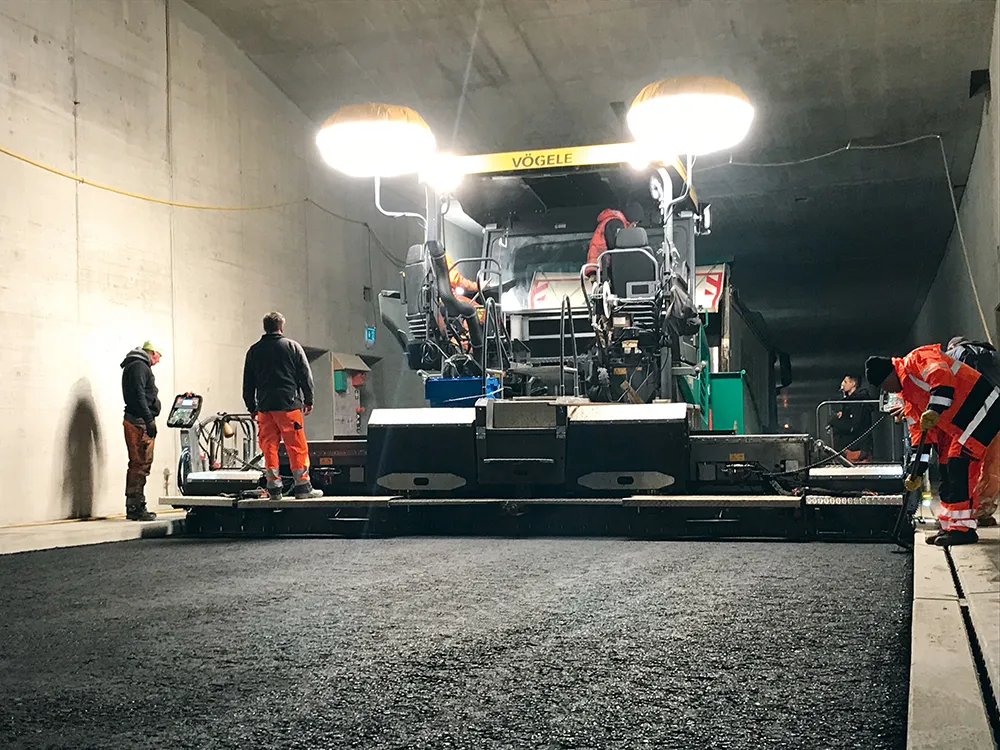
The MTH 225 can be used in highway applications such as soil stabilisation, milling thin top layers of road surface or crushing an entire depth of asphalt to turn it into road base. The unit is versatile as it can cope with the presence of stones, rocks and asphalt during the mixing process.
The unit is a useful tool for treating materials in situ, says contractor John DeLuca of A. DeLuca Paving, who has trialled the machine. “In New Jersey, we have problems getting rid of old asphalt, it’s expensive to do, so we want to take materials that are already in situ and improve them, using cement as binders.”
With a working depth that ranges between 340mm and 500mm, the MTH 225 has counter blades which the operator can adjust in order to control the size of the material being crushed. “With this machine we can shred the asphalt and improve the gradation,” says said.
The improved automatic water system is important for applications such as soil stabilisation where lime cement and water are mixed with the ground to improve its strength. “When you are doing soil cement, you need to be precise with the dosage of water in order to meet the specification,” said DeLuca.
At 2.84m wide, with a working width of 2.32m, the 7.2tonne MTH 225 can be used for small and medium jobs, where a standard machine would not fit, or would be expensive to have on hand all the time. One tractor can be used to tow this and other attachments, reducing the machine resource required, according to DeLuca.
Apart from its size, the machine has other benefits over a standard reclaimer. DeLuca said that the unit can cope with obstacles such as boulders or even lumps of steel, which would damage other machines and put them out of operation. DeLuca has been using MTH attachments on car park paving for warehouse developments, where the ability to cope with unknowns in the ground helps limit downtime.
Meanwhile in Italy, the use of a unit from FAE has resulted in a new recycled material being developed for road surface construction.
As part of the process of building of roads and infrastructure, several tonnes of earth and aggregate are needed to create screed, bearing layers and paving. These may be natural materials, which are required to satisfy exacting standards of performance. But now, an innovative Italian company called Marchesi Movimento Terra has developed a high-performing mixture for road construction applications that comprises inert aggregates derived from the recovery of construction waste.
An FAE MTH plays a key role in the inert waste being mixed homogeneously and also being supplemented with a hydraulic binder to produce the finished material. And according to FAE, tests show that this material provides high performance. There are two advantages of using this method. Firstly, the material produced is more environmentally-friendly than mixes using virgin materials. And secondly, these recycled mixes are also far less costly than when using conventional materials.
The new material, called MPS 0-63, was developed in 2019. A client had commissioned the supply of approximately 26,000m3 of material to be used in the construction of a road embankment for a bypass, located close to Bologna. The company used a mixture comprising granulometrically stabilised earth, the coarse fraction of which consists of gravel and fragments from demolition, mixed with 1.5% 32.5R Portland cement to improve its mechanical properties. Once the material had passed the required physical and mechanical tests, production was able to commence.
The consistency offered by the FAE MTH was crucial. It took two months of work to process all the material, during which the MTH processed approximately 1,000m3 of material/day. Marco Marchesi, the owner of Marchesi Movimento Terra, also pointed out the versatility of the MTH, which has been able to handle various tasks including stabilising land and crushing rocks, stone slabs and asphalt.







